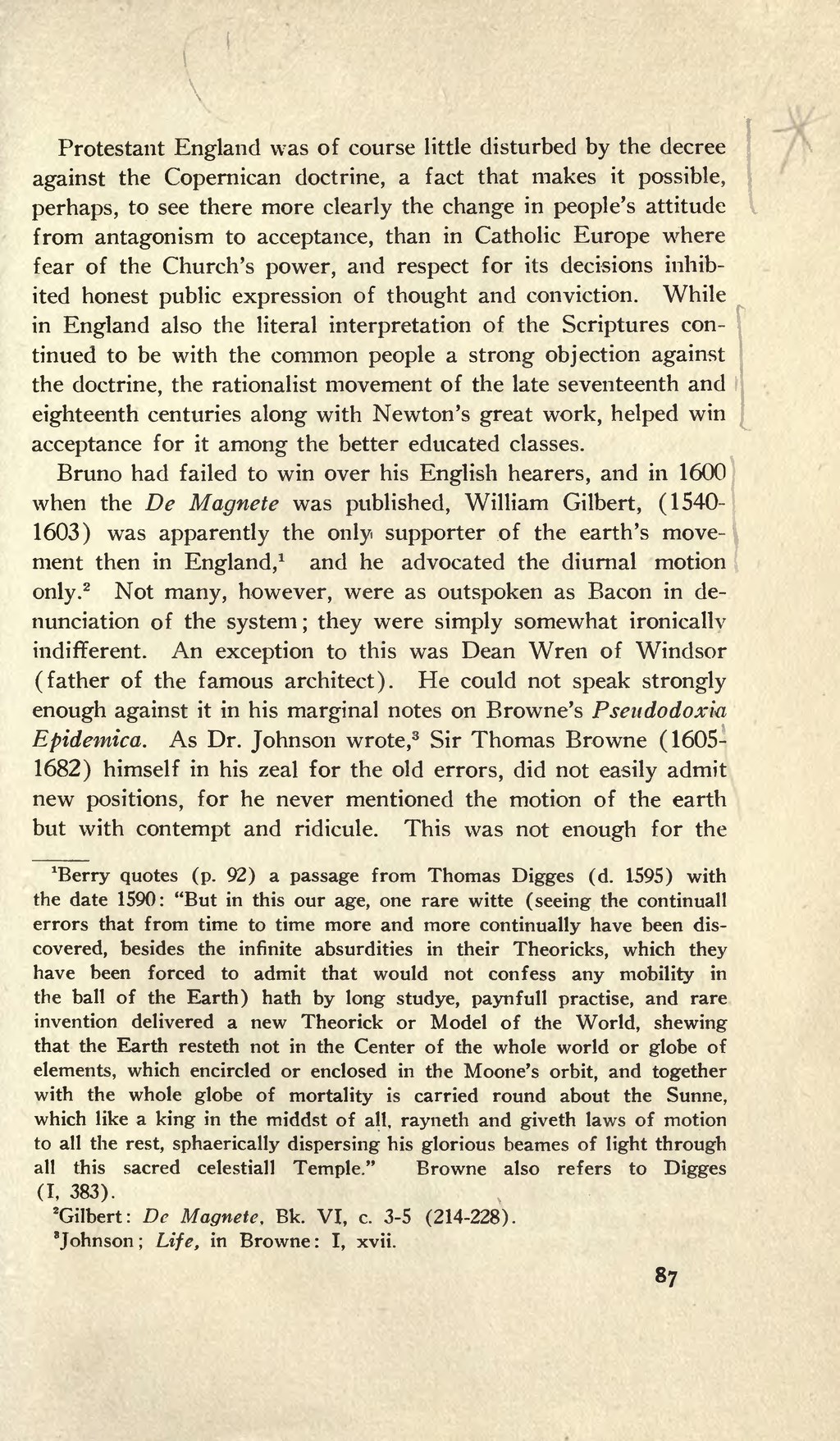Protestant England was of course little disturbed by the decree against the Copernican doctrine, a fact that makes it possible, perhaps, to see there more clearly the change in people's attitude from antagonism to acceptance, than in Catholic Europe where fear of the Church's power, and respect for its decisions inhibited honest public expression of thought and conviction. While in England also the literal interpretation of the Scriptures continued to be with the common people a strong objection against the doctrine, the rationalist movement of the late seventeenth and eighteenth centuries along with Newton's great work, helped win acceptance for it among the better educated classes.
Bruno had failed to win over his English hearers, and in 1600 when the De Magnete was published, William Gilbert, (1540-1603) was apparently the only supporter of the earth's movement then in England,[1] and he advocated the diurnal motion only.[2] Not many, however, were as outspoken as Bacon in denunciation of the system; they were simply somewhat ironically indifferent. An exception to this was Dean Wren of Windsor (father of the famous architect). He could not speak strongly enough against it in his marginal notes on Browne's Pseudodoxia Epidemica. As Dr. Johnson wrote,[3] Sir Thomas Browne (1605-1682) himself in his zeal for the old errors, did not easily admit new positions, for he never mentioned the motion of the earth but with contempt and ridicule. This was not enough for the
- ↑ Berry quotes (p. 92) a passage from Thomas Digges (d. 1595) with the date 1590: "But in this our age, one rare witte (seeing the continuall errors that from time to time more and more continually have been discovered, besides the infinite absurdities in their Theoricks, which they have been forced to admit that would not confess any mobility in the ball of the Earth) hath by long studye, paynfull practise, and rare invention delivered a new Theorick or Model of the World, shewing that the Earth resteth not in the Center of the whole world or globe of elements, which encircled or enclosed in the Moone's orbit, and together with the whole globe of mortality is carried round about the Sunne, which like a king in the middst of all, rayneth and giveth laws of motion to all the rest, sphaerically dispersing his glorious beames of light through all this sacred celestiall Temple." Browne also refers to Digges (I, 383).
- ↑ Gilbert: De Magnete, Bk. VI, c. 3-5 (214-228).
- ↑ Johnson; Life, in Browne: I, xvii.
87

